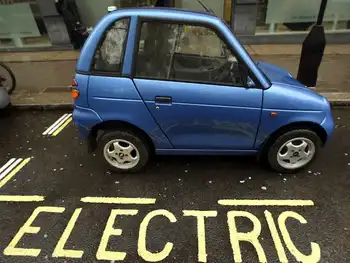FERC Grid Plan Casts Cloud On Legislation
WASHINGTON -- - A group of Republican lawmakers from the Southeast criticized federal energy regulators for a plan to standardize nationwide power market rules, and some said the rules could be a stumbling block for ongoing electricity industry legislation.
Many Southern and Western states have blasted the Federal Energy Regulatory Commission's proposed market rules, which would combine regional transmission networks, launch real-time trading and monitor for unfair trades, beginning in 2004 in some regions.
The states contend the rules would also strip them of their authority over local utilities and raise electricity rates.
"I despise at every level heavy-handed tactics of a federal agency," said Rep. Charles Norwood, a Georgia Republican. "I've got a big problem with you trying to effect a proposal that will affect my electric rates," he told FERC Chairman Pat Wood at a hearing by a House Energy subcommittee on energy policy.
The panel met to discuss a colossal energy bill that includes controversial efforts like automobile efficiency standards and drilling for oil in Alaska's wildlife refuge as well as electricity provisions.
Wood said that the proposed FERC rules are needed to prevent preferential treatment in transmission-grid access. The Southeast's rates and reliability are satisfactory, but the FERC plan could lower prices, he told Norwood.
DEPARTMENT OF ENERGY ALSO ANALYZING RULES
FERC recently agreed to prepare a new analysis of the rules by April on how its proposal will affect individual states. A final rule may be out by the end of summer, Wood said. The Energy Department will also make its own study of the rules.
Six Connecticut lawmakers, including Democrats Sens. Christopher Dodd and Joseph Lieberman, last month asked the FERC to delay its proposal until those analyses are complete.
The so-called "standard market design" rules are a major question mark hanging over new efforts to rewrite electricity industry legislation, some lawmakers complained on Wednesday.
"You have a lot of these contentious issues wrapped up in the electricity provisions," Rep. Rick Boucher, a Virginia Democrat, told Reuters. FERC's proposal "complicates the process -- there's no doubt about that," Boucher said.
Both chambers of Virginia's legislature have passed a bill that bar its two utilities -- subsidiaries of Dominion Resources Inc. and American Electric Power Co. Inc. -- from joining a grid group until after June 2004.
That may delay plans by grid operators PJM Interconnection and Midwest Independent Transmission System Operator to create a common market over 26 states by October 2004.
"One (state) has said no and it does in fact stop it for all 26" states involved in the grid effort, Wood said.
FERC SLOWING ENERGY BILL?
The draft electricity reform language was fashioned by Republican House lawmakers, and has yet to be voted on by the full House. The Senate is still preparing an energy bill.
The Republican-written version of the House bill would also repeal some Depression-era monopoly protections, strip FERC of its merger-review authority, and give FERC limited power to condemn state lands to build needed transmission lines.
The draft bill does not directly address the FERC's market design, but some lawmakers see them as central to its fate.
Rep. Edward Whitfield, a Kentucky Republican, called it "unprecedented" that FERC was claiming jurisdiction over state transmission lines. Kentucky has some of the cheapest rates in the nation, mostly due to its dirty coal-fired plants, and is loath to see its rates rise to benefit other regions, he said.
Lawmakers from North Carolina and Louisiana raised similar complaints.
Rep. Chris John, a Louisiana Democrat, called the FERC rules a "nonstarter."
The House energy bill would also repeal the Public Utilities Company Holding Act of 1935, created as a trust-busting measure to prevent utilities from expanding outside a single region.
Texas Rep. Joe Barton, chairman of the subcommittee, said repeal would encourage investment in the battered sector.
Boucher said he was concerned that the repeal of the Act, together with stripping FERC of its existing merger review authority could harm consumers. Repeal of of the Act will unleash an "avalanche of consolidation" in the industry, and the Justice Department looks at "rigid antitrust principles," not consumer-protection issues, he said.
"You still need the FERC," Boucher said.
Related News

Gaza’s sole electricity plant shuts down after running out of fuel
GAZA - The only electricity plant in the Gaza Strip shut down yesterday after running out of fuel banned from entering the besieged enclave by the Israeli occupation, Gaza Electricity Distribution Company announced.
“The power plant has shut down completely,” the company said in a brief statement.
Israel banned fuel imports into Gaza as part of punitive measures over the launching incendiary balloons from the Strip.
On Sunday, GEDCO warned that the industrial fuel for the electricity plant would run out on Tuesday morning.
Since 2007, the Gaza Strip suffered under a crippling Israeli blockade that has deprived its roughly two million inhabitants of…




